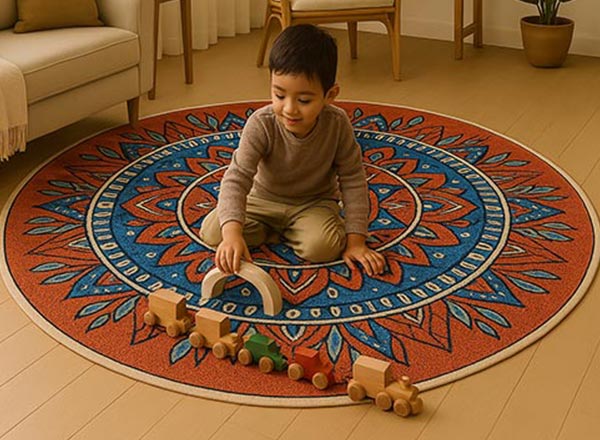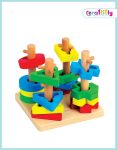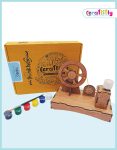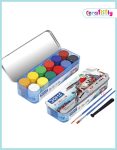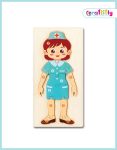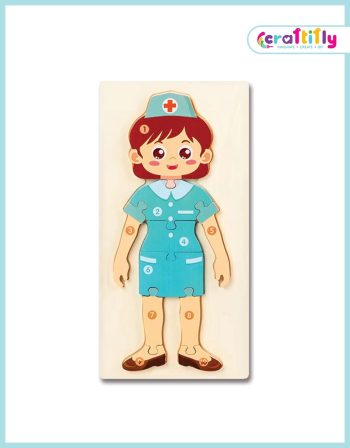In a child’s world, play is not just fun — it’s essential. And when play is combined with learning, the results can be truly powerful. That’s where educational toys come in. These specially designed tools foster imagination, cognitive development, problem-solving skills, and social interaction — all while keeping kids entertained.
In this blog, we’ll explore why educational toys are more than just playthings, and how they contribute to a child’s mental, emotional, and physical development.
1. Learning Made Fun
Traditional learning methods can sometimes feel dull or repetitive to young children. Educational toys make learning fun, hands-on, and engaging. Through games, puzzles, building blocks, and interactive toys, children absorb concepts like numbers, colors, shapes, or letters without even realizing they’re learning.
Example:
-
A toy cash register teaches math and counting.
-
A colorful alphabet puzzle helps with letter recognition and vocabulary.
2. Boosts Cognitive Development
Educational toys stimulate a child’s brain and support the development of important cognitive skills such as:
-
Memory
-
Logic and reasoning
-
Attention span
-
Problem-solving
For example, matching games and shape sorters train the brain to recognize patterns, analyze options, and make decisions — all fundamental skills needed later in academics and life.
3. Enhances Fine and Gross Motor Skills
Toys that involve grasping, stacking, drawing, or manipulating small pieces help develop fine motor skills. On the other hand, activity-based toys like ride-ons, balls, or climbing sets improve gross motor skills, coordination, and physical strength.
Great choices:
-
Bead mazes
-
Building blocks
-
Art and craft kits
-
Balance games
4. Encourages Creativity and Imagination
Educational toys often allow for open-ended play — meaning children can play in many ways and express their creativity. Toys like building sets, modeling clay, or role-playing kits (like doctor sets or cooking toys) inspire storytelling, exploration, and innovation.
This imaginative play is essential for emotional development and helps kids understand the world around them.
5. Builds Social and Emotional Skills
When children play with others using educational toys, they learn to:
-
Share
-
Communicate
-
Take turns
-
Solve conflicts
Board games, cooperative puzzles, or pretend-play sets encourage group interaction and help develop empathy, patience, and teamwork — all key social-emotional skills.
6. Encourages Independent Play and Confidence
Educational toys also support independent learning. When children explore and succeed on their own — whether it’s solving a puzzle or building something new — it boosts their self-confidence and nurtures a love for learning.
7. Prepares Children for School
Many educational toys align with early childhood curriculum, making them excellent school readiness tools. Toys that introduce numbers, alphabets, basic science, or geography help ease the transition from home to school and support academic growth from an early age.
Final Thoughts
Educational toys are not just a trend — they are a powerful tool in a child’s developmental journey. They shape the way children think, move, feel, and connect with others, all while keeping learning joyful.
As parents, educators, or gift-givers, choosing the right educational toy means investing in a child’s future, one playful step at a time.
